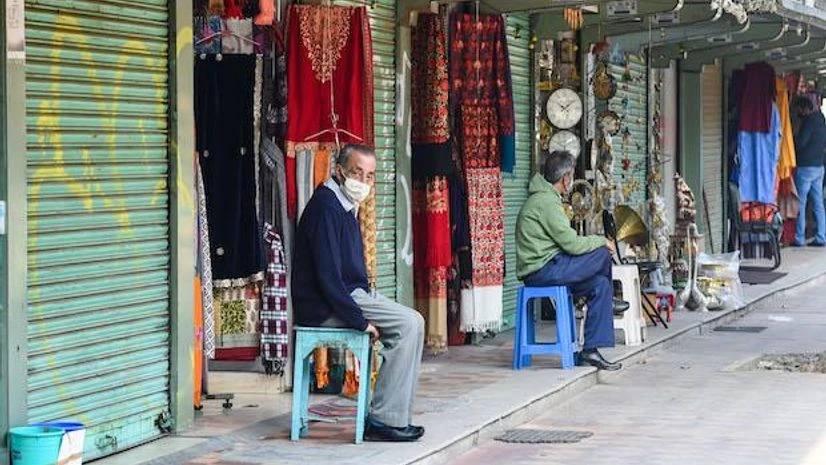The Chamber of Trade and Industry (CTI), an umbrella body of different trade unions in Delhi, urged the DDMA on Wednesday to amend the restrictions under the GRAP for COVID-19 and consider two other indicators as well -- the number of fresh cases of the infection and that of the oxygen beds occupied -- before announcing any colour-coded alert.
The Delhi Disaster Management Authority (DDMA) has sounded a "yellow" alert under its Graded Response Action Plan (GRAP) after the Covid positivity rate in the national capital was recorded above 0.5 per cent for two consecutive days.
The DDMA on Tuesday ordered a closure of schools, colleges, cinema halls and gymnasiums with immediate effect and clamped various restrictions on the functioning of shops and public transport.
A "yellow" (level-1) alert is sounded when the Covid positivity rate is recorded above 0.5 per cent for two consecutive days or the number of fresh cases of the infection stays at 1,500 or above for seven days or the oxygenated-bed occupancy stays at 500 or above for seven days.
The "yellow" alert restrictions stipulate that shops and establishments of non-essential goods and services and malls will open on an odd-even basis from 10 am to 8 pm.
CTI chairman Brijesh Goyal said he has written to the DDMA, urging it to amend the GRAP conditions as traders are facing huge losses because of the restrictions.
"At present, Delhi is neither reporting 1,500 coronavirus cases per day nor 500 oxygen beds are occupied. According to the CTI, there is a need to make changes in the colour-code provisions.
More From This Section
"If all three conditions -- the infection rate, the number of fresh cases and the oxygen bed occupancy -- are being met simultaneously, then the restrictions under a GRAP colour code should be imposed," Goyal told PTI.
He said the coronavirus situation is not alarming in Delhi currently as the patients are not complaining of severe symptoms and those infected with the Omicron variant of the virus are recovering without oxygen and ICU support.
Goyal argued that if restrictions are imposed only on the basis of the case positivity rate, then as soon as it reaches two per cent, the "orange" colour code will come into play and 90 per cent of Delhi will be shut.
In that case, industrial, production and manufacturing units, along with shops, will be shut. Shopping malls, weekly markets and the Delhi Metro will also be closed and only essential goods can be delivered, he said.
Marriages will take place with an attendance of 15 people in court or at home and an equal number of people will be able to attend a funeral, Goyal added.
"In such a situation, the DDMA should reconsider the restrictions under the GRAP. The concerns of the businessmen of Delhi have increased. Businesses will be ruined and jobs will be at risk," he said.
Goyal also pointed out that barring the national capital, such restrictions have not been clamped anywhere in the country.
He said the GRAP restrictions were imposed considering the havoc wreaked by the Delta variant of the coronavirus, but the Omicron variant of the virus is not that frightening, which the government also believes.
"Therefore, according to the severity of COVID-19, the government should make changes in the restrictions suggested by the GRAP," Goyal said.
(Only the headline and picture of this report may have been reworked by the Business Standard staff; the rest of the content is auto-generated from a syndicated feed.)

)
